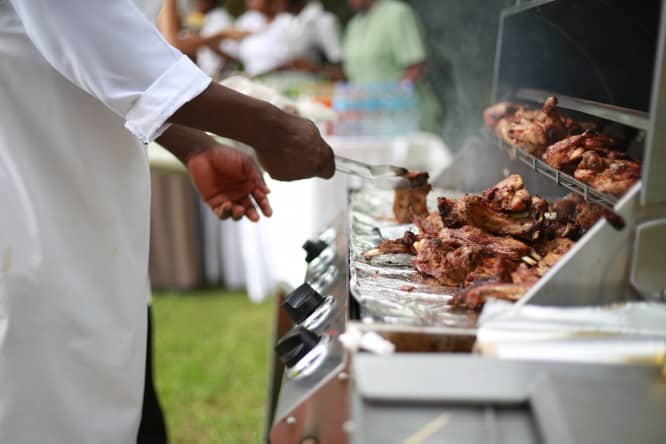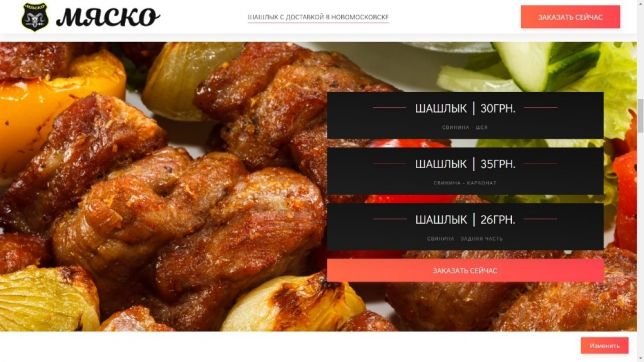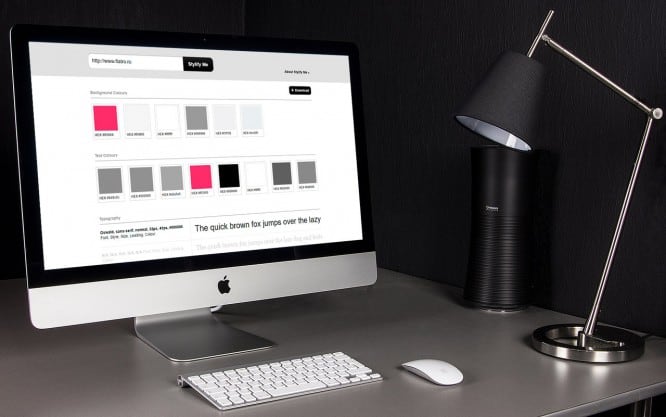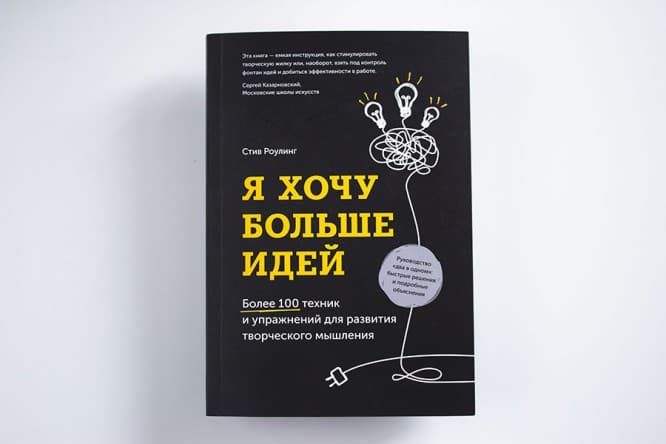Understanding the design problem
Understanding the design problem
Any designer must understand what task the customer sets for him and how it needs to be solved. This short text will tell you how (not) you need to approach the client’s tasks.
Yurochka woke up in a great mood. Putting his feet into the slippers, he went to the kitchen to make tea. Yurochka loved pu-erh, so he had to fiddle with tea – and during this fuss he made every effort not to look at the kitchen table. The fact is that on this table lay a freshly prepared diploma of the fifteen-day creative school “Graphics, Text, Profit”. Yesterday Yurochka officially became a designer.
The issuance of diplomas was a purely formal matter. Already by the third task, he made a website for himself, where everyone could find out that Yurochka’s name is Yurochka, that he is a designer, that he works according to the methodology lean sprint ahead and – the main thing! – that he, Yurochka, never takes up work without first understanding the task. Understanding the task was so fundamental that Yurochka began by chance, even automatically, to understand any and not just design tasks. For example, while he was preparing tea, he was fully aware that tea is not the ultimate goal of making tea; and even the pleasure of drinking it has only a superficial relation to this process. The deep, true, purpose of making tea was to satisfy Yura’s sense of hedonism, which, in turn, led to conscious productivity and professional success. Yurochka got this idea from the book “How Small Things Create Reality” by the publishing house “Katz, Rosenthal and Cerberus”. He always kept this book in the kitchen in case of a sudden need for inspiration.
Thus, yesterday could be considered only a conditional milestone. Yurochkin’s graduation project was almost unanimously recognized by the teachers as the best in the group. He called Wedding // Embedding and was a promo page for a chatbot service that helps prepare for the wedding. Chatbots were supposed to be embedded in the sites of wedding salons. Everyone predicted a bright future for the service.
With these thoughts, Yurochka took a mug of tea in his hand and went back to the room to choose a place for the diploma. As he walked past the computer, he noticed a red pimpa over a mail icon. (Yurochka basically did not use the borrowed word “badge.” Among themselves, the group agreed to call these things pimps, and Zhenya Sobachkina even wrote a very detailed post about why everyone should do this.) Yurochka sat down at the computer and read the letter. All Yura’s insides immediately quivered, his fingers trembled, his lips trembled and his soul flew away grief, as the poet said. First order! The author of the letter was named Saro Bagratovich Madanyan and he was the owner of a barbecue. The kebab house needed a website.
Yurochka knew what he had to do. He answered Saro Bagratovich in full form, as taught in the courses. First, Yurochka will be happy to help Saro Bagratovich. However, Saro Bagratovich cannot count on a personal meeting, since personal meetings are nothing more than a waste of time. Secondly, for the site Yurochka will take twenty thousand rubles with a full prepayment, and if nothing works out, then the prepayment, alas, will not be returned. Yurochka separately noted that if Saro Bagratovich is dissatisfied with this, he should turn to someone else. Thirdly, Yurochka works under a standard contract, the terms of which he will not change and which he annexes to this letter. The agreement is divided into two columns: on the left is written the text in legal language, on the right – an explanation “for people”. Finally, Yurochka never starts work without understanding the task. Understanding the task is the cornerstone of his work and therefore he offers a skype call as soon as possible.
Having sent the letter, Yurochka sat down to study the barbecue business. The barbecue business, as it turned out, was that many people love to eat barbecue and are willing to pay money for it. Other people know how to cook it, and sometimes they have a surplus that they sell. Yurochka found all this extremely interesting.

Finally he got an answer. Saro Bagratovich told Yurochka that Yurochka’s letter made him very cheerful, and also amused his whole family. Moreover, Saro Bagratovich continued, it also amused many of his friends and just people who happened to be around. All these people agreed with Saro Bagratovich that twenty thousand rubles is not money at all, if you compare them with pleasure to observe the actions of a good Tsakhratsu (Yurochka suggested that this means “designer”).
The call was assigned and made. Saro Bagratovich turned out, to Yurochka’s taste, too fat and too involved in cognac (Yurochka himself, of course, did not drink). Yurochka even thought about “dismissing” Saro Bagratovich on this basis and reread the chapter on the dismissal of clients in the book “How Small Things Create Reality”. But on reflection I changed my mind. Recently, he spent money from friends, and in general it was a little tough with the material side.
During the call, Yurochka found out what kebabs and snacks were prepared in Saro Bagratovich’s kebab and at what price he intends to deliver them to those who wish. Satisfied, Yurochka went to bed so that the next day he could begin to understand the problem. He never understood the task on the same day, as he was taught that nothing and should never be done on the same day.
Waking up the next morning, elated, Yurochka checked the account (twenty thousand rubles pleasantly burdened him) and immediately ran to the coworking coffee shop called “Koforking”. There he ordered lavender raff, took out an A3 sheet from his bag and wrote coarsely at the top: “a site for the delivery of barbecue.” Then he boldly, crosswise, crossed out this inscription with a red felt-tip pen (Yurochka did not say “marker”). The red cross meant that the client never understands his own task, but only the designer understands it. Therefore, for the sake of true understanding of the task, client words should be ignored. The coffee maker (Yurochka did not say “barista”) brought the raf. Yurochka began to think. Thoughts did not go.
Twenty minutes later, he wrote the phrase “make money” on a sheet of paper and also crossed it out: it was too general an understanding of the problem. Then he described the traffic sources and possible conversions. It was quite obvious that the kebab shop required newsletters and a good presence on Instagram, but the site remained cloudy. Yurochka also realized that the shish kebab shop should infiltrate the delivery collectors (he did not say “aggregator”). Finally, Yurochka understood that a kebab shop does not need a website! It was a brilliant conclusion – and just in the spirit of what was learned in the courses. The client is so obscure that the designer should dispute the very subject of the order – question the very existence of the task!
In the evening, he wrote a letter to Saro Bagratovich, where he outlined his findings. Saro Bagratovich responded relatively quickly. The barbecue was already present in all the necessary aggregators; he did not believe in the newsletter. But most importantly, it turned out that Saro Bagratovich had a brother named Gegham Bagratovich. Gegham was, judging by the description, young, brave, reckless and extremely scrupulous about debt. In this regard, Saro Bagratovich suggested that Yurochka think about the site again – you never know what would come to mind! A photograph of Gegham Bagratovich was attached to the letter and it did not inspire Yurochka very much.

A day passed, then a second. All Yura’s creature tried to understand the problem, but nothing came of it. He looked through dozens of kebab sites and found them horribly executed. The design was overloaded, there was no need to talk about the text at all. The verbs were weak and the adjectives were too general. Yurochka was losing his appetite.
On the fourth day of this frenzy, Yurochka accidentally met in the “Koforking” the art director’s acquaintance, Lesha, from the “Blue Boots” agency. Internally, Yurochka despised Lesha: he never understood the task, showed too easy behavior and drank beer. But Lesha greeted first, and Yurochka had no excuse to leave. Having talked, Yurochka himself did not notice how he dumped all the ins and outs of his current distressing situation.
“What are you, take some normal pictures and that’s it,” Alex said cheerfully. – “And fuck adaptively.”
Yurochka cringed with disgust and disgust. How could this awful person betray the sacred ideal of his profession – understanding the task! How could he give such superficial and frivolous advice and, moreover, with obscenities! And not even advice, how can such an abomination be called advice? Yurochka’s eyes darkened. Lesha continued to talk about something else, and Yurochka plunged into a black, plague state. He seemed to be seized by delirium. Finally he jumped up, goggled his eyes and shouted: “The harlot!” Lesha recoiled, but Yurochka could not be stopped. Bulging his eyes and splashing saliva, he shouted to the entire coffee shop: “Opportunist! The opportunist! Rvach Samara! “
Mom picked him up from the coffee shop, and she sat with him for the next week, soldering with broth. Yurochka rushed about in delirium, shouting sometimes incomprehensible words to anyone. Saro Bagratovich managed to break up amicably – nevertheless, he was a good person and even sent a lot of barbecue with Gegham for the patient. But he, seeing this shish kebab, shook shallowly, turned pale and even threw the book “How small things create reality” at him. The kebab had to be removed.
***
Everything passes under the moon, and Yura’s mental illness has passed. He no longer thought about design, he got a job as a part-time bild editor somewhere. He diligently avoids friends from the courses, as now he avoids me.
So there is nothing more to tell about him.
Source: designpub.ru
…


